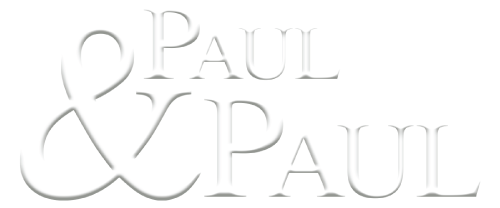Known as one of the most accomplished intellectual property law firms in the Greater Philadelphia Metropolitan area, Paul & Paul has a legacy of providing expert legal assistance and legal help for trademark applications, patent applications and copyright applications for over a century.

The patent attorneys at Paul & Paul are advocates for inventors, entrepreneurs, and business owners. Our intellectual-property attorneys tackle each of our client’s challenges in the patent process. Don't let the cost or the technical details of a particular area of filing for a patent. We are federally licensed to practice before the U.S. Patent & Trademark Office, and regularly represent clients located across the US and globally.
Our Philadelphia based law firm handles Trademark filing throughout the United States and across the globe. We work with trademark owners to ensure the United States Patent and Trademark Office (USPTO) rules and regulations are followed. Assistance with trademark monitoring, filing fees, fights over trademark infringement, trademark renewals, new trademark filing process, office actions, trademark opposition proceedings, common law trademarks, and trademark litigation are all part of the top-notch legal advice and trademark services provided by Paul & Paul.
When clients need a thorough understanding of technology and intellectual property law to safeguard their innovations, they turn to Paul & Paul, patent law attorneys. We have been protecting our clients' inventions with a full array of services including patent prosecution, trademark and copyright registration, infringement analysis and opinion drafting. We understand the complexities of the ever-changing legal landscape and provide comprehensive counsel to meet all our clients’ needs.
Clients rely on Paul & Paul to ensure prosecution of their patents and trademarks progresses efficiently through the examination process to protect their intellectual property rights. Our experienced attorneys provide strategic legal advice and guidance to our clients regarding the scope of protection they are able to obtain.
Paul & Paul's litigation practice has served clients for more than 150 years in a wide variety of intellectual property matters, including the technical details of trademark law. Our attorneys have a deep understanding of the complex and ever-evolving laws that govern intellectual property, including patents, trademarks, copyrights, and trade secrets.
Through a network of intellectual property firms that practice law around the globe, Paul & Paul offers its clients worldwide Intellectual Property Law services. Our network of experts is well versed in all aspects of the intellectual property process, from trademark and patent filings to copyright registration. With our comprehensive knowledge and experience, we are able to offer effective solutions that meet the unique needs of each client.
About Us
Contact Us
100 N. 18th Street, Suite 830
Philadelphia, PA 19103
Office: (215) 568-4900
Fax: (215) 567-5057
Email: info@paulandpaul.com
© 2023 All Rights Reserved | Paul & Paul